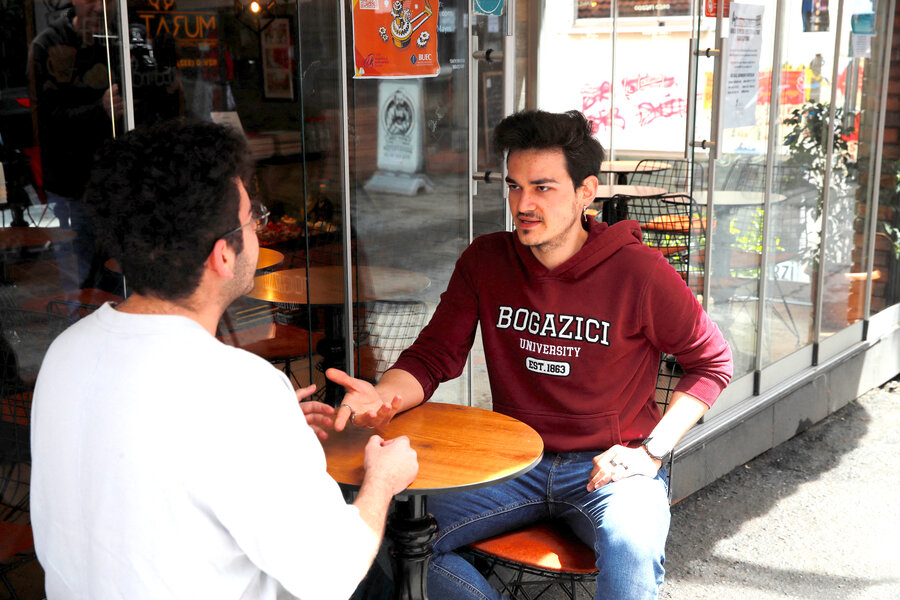The choice in Turkey’s vote
On Sunday, Turkey will vote in an election with consequences reaching far beyond its borders. For the country’s 64 million voters and their families, the immediate concerns are bread and butter. Inflation peaked at 85% last October. The nation’s currency has plunged 57% against the U.S. dollar.
At a time when many democracies are struggling, Turkey’s ballot for president and parliament marks a test case. “The question is simple: ... fear or hope?” wrote journalist Ece Temelkuran in The Guardian.
As Turkey’s leader for 20 years, Recep Tayyip Erdoğan has slid toward one-man rule, consolidating authority in a new, all-powerful presidency while undermining parliament, the judiciary, and the central bank. Since surviving a coup attempt in 2016, he has arrested some 80,000 people and muzzled institutions like the media and universities with layers of new restrictions.
Polls show Mr. Erdoğan trailing his opponent, Kemal Kılıçdaroğlu, a consensus candidate backed by six opposition parties who has vowed to restore integrity to the country’s democratic institutions. Their differences have played out on the campaign trail in a debate over individual and national identity rarely seen even in the most robust democracies.
Mr. Erdoğan has styled himself as a populist Islamist who eschewed Turkey’s modern secularism to restore Muslim mores. In contrast, Mr. Kılıçdaroğlu, who comes from a minority Muslim sect called the Alevis, sought in a recent video to put universal qualities at the center of Turk identity.
“We can choose to be good people, to be honest and ethical, to have a conscience, to be virtuous and just,” he said in a widely viewed video. “We can choose to live a better life, in a free and prosperous country.”
That message was tailored to appeal to women and youth who have emerged as sources of civic strength. In Turkey, young, first-time voters who have lived their whole lives under Mr. Erdoğan’s rule make up 8% of the electorate. A recent poll showed that just 1 in 5 Turks age 18-25 support the president and ruling party. Another poll found that 62% lament the underrepresentation of women in politics.
“The issue of female politicians is not just a matter of equal representation,” said Nilden Bayazit, a women’s rights advocate. “A female politician is needed for a democratic society, for justice, to solve the climate problem, to end corruption, to transform education policies and to regulate family policies.”
Critics of Mr. Erdoğan worry he may not accept a defeat. Previous national and local elections were mired in fraud. But Turks living abroad have already voted in record numbers. On voting day, civil society groups will dispatch monitors to polling stations armed with apps and social media to report results and irregularities. Regardless of the ballot’s outcome, a mental shift toward self-government has already taken place.





